FRANKFORT, Ky. (AP) — Looking for hard-to-find bottles of Kentucky bourbon to toast the holidays or add to a collection? Get your bids ready as the Bluegrass State launches its first online auction of confiscated alcohol.
Whiskeys up for sale include two bottles of Old Rip Van Winkle, a Blanton’s Single Barrel Gold in box with Japanese markings and a bottle of Four Roses Small Batch Barrel Strength 2011.
The sale is the result of a new Kentucky law, which allows alcohol confiscated from closed criminal investigations by the state's alcoholic beverage control agency to be auctioned.
Online bidding opens Wednesday and closes at midnight on Dec. 11. Proceeds will support programs promoting responsible alcohol use by adults and awareness programs for youths.
“This is a really good auction,” Eric Gregory, president of the Kentucky Distillers’ Association, said by phone Tuesday. “There are some hard-to-find and rare bottles on there.”
No estimate has been given on how much the auction might raise.
“We look forward to seeing the response to this auction and have started planning additional auctions for 2025,” said Allyson Taylor, commissioner of the Kentucky Department of Alcoholic Beverage Control.
The auction features 32 bottles of alcohol and includes a “stock the bar” bundle with bottles of wine, vodka, rum and whiskey, the agency said.
But the stars are the hard-to-find and rare bourbons up for sale.
“It’s not every day you go to a liquor store and find a bottle of Blanton’s Gold," Gregory said. “You never go to a liquor store and find a bottle of Four Roses 2011.”
The lineup includes bottles of E.H. Taylor bourbon, Blanton’s Single Barrel, Eagle Rare 10 yr., Weller Antique 107, Willett Family Estate Single Barrel Rye, Michter’s, an Old Forester gift set and more.
A link to the online auction is available at ABC.ky.gov. Auction items cannot be shipped, so winning bidders must pick up items in Frankfort, the state said.
The auctions will become a “can't miss opportunity” for bourbon connoisseurs, Gregory said.
Previously, confiscated bourbon or other spirits could end up being destroyed, he said.
“We don't like to see good bourbon poured down the drain,” Gregory said.
Kentucky distillers produce 95% of the global bourbon supply, the Kentucky distillers’ group says.
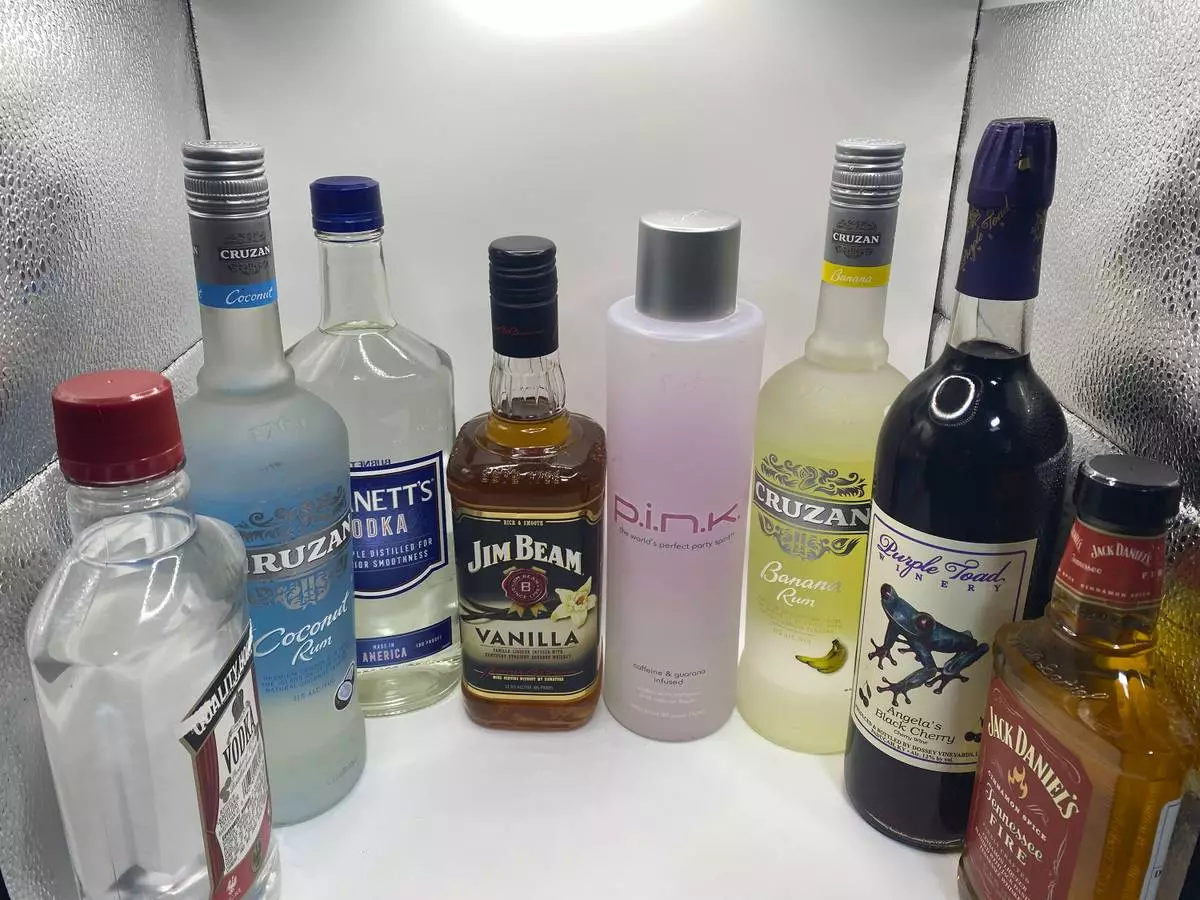
This photo provided by the KentuckyPublic Protection Cabinet shows confiscated alcohol that the state of Kentucky will auction off on Wednesday, Nov. 27, 2024. (KentuckyPublic Protection Cabinet via AP)
NEW YORK (AP) — U.S. stocks are hanging near their records on Tuesday as Wall Street takes Donald Trump’slatest talk about tariffs in stride, even if they could roil the global economy were they to take effect.
The S&P 500 rose 0.4% in afternoon trading and was on track to squeak past its all-time high set a couple weeks ago. The Dow Jones Industrial Average lost 49 points, or 0.1%, from its own record set the day before, while the Nasdaq composite was 0.6% higher, as of 1:04 p.m. Eastern time.
Stock markets abroad were down, but mostly only modestly, after President-elect Trump said he plans to impose sweeping new tariffs on Mexico, Canada and China as soon as he takes office. Stock indexes were down 0.1% in Shanghai and nearly flat in Hong Kong, while Canada's main index was down 0.2%.
Trump has often praised the use of tariffs, but investors are weighing whether his latest threat will actually become policy or is just an opening point for negotiations. For now, the market seems to be taking it more as the latter.
Unless the United States can prepare alternatives for the autos, energy products and other goods that come from Mexico, Canada and China, such tariffs would raise the price of imported items all at once and make households poorer, according to Carl Weinberg and Rubeela Farooqi, economists at High Frequency Economics. They would also hurt profit margins for U.S. companies, while raising the threat of retaliatory tariffs by other countries.
General Motors sank 8.3%, and Ford Motor fell 2.2%. Constellation Brands, which sells Modelo and other Mexican beers in the United States, dropped 3.8%.
Beyond the pain such tariffs would cause U.S. households and businesses, they could also push the Federal Reserve to slow or even halt its cuts to interest rates. The Fed had just begun cutting its main interest rate from a two-decade high a couple months ago to offer support to the job market. While lower interest rates can boost the overall economy and prices for investments, they can also offer more fuel for inflation.
Unlike tariffs in Trump's first term, his proposal from Monday night would affect products across the board.
Trump’s tariff talk came almost immediately after U.S. stocks rose Monday amid excitement about his pick for Treasury secretary, Scott Bessent. The hope was the hedge-fund manager could steer Trump away from policies that balloon the U.S. government deficit, which is how much more it spends than it takes in through taxes and other revenue.
The talk about tariffs overshadowed another set of mixed profit reports from U.S. retailers that answered few questions about how much more shoppers can keep spending. They’ll need to stay resilient after helping the economy avoid a recession, despite the high interest rates instituted by the Fed to get inflation under control.
Kohl’s tumbled 16.6% after its results for the latest quarter fell short of analysts’ expectations. CEO Tom Kingsbury said sales remain soft for apparel and footwear, which helped drag its revenue lower. Kingsbury said a day earlier that he plans to step down as CEO in January. Ashley Buchanan, CEO of Michaels and a retail veteran, will replace him.
Best Buy fell 6.9% after likewise falling short of analysts’ expectations. Dick’s Sporting Goods topped forecasts for the latest quarter thanks to a strong back-to-school season, but its stock lost an early gain to fall 0.3%.
A report on Tuesday from the Conference Board said confidence among U.S. consumers improved in November, but not by as much as economists expected.
J.M. Smucker jumped 4.6% for one of the biggest gains in the S&P 500 after topping analysts' expectations for the latest quarter. CEO Mark Smucker credited strength for its Uncrustables, Meow Mix, Café Bustelo and Jif brands.
Big Tech stocks also helped prop up U.S. indexes. Gains of 2.4% for Amazon and 1.9% for Microsoft were two of the strongest forces lifting the S&P 500.
In the bond market, Treasury yields rose following their big drop from a day before driven by relief following Trump’s pick for Treasury secretary.
The yield on the 10-year Treasury climbed to 4.31% from 4.28% late Monday, but it’s still well below the 4.41% level where it ended last week.
In the crypto market, bitcoin continued to pull back after topping $99,000 for the first time late last week. It's since dipped back toward $93,500, according to CoinDesk.
It’s a sharp turnaround from the bonanza that had earlier taken over the crypto market following Trump’s election. That boom had also appeared to have spilled over into some corners of the stock market. Strategists at Barclays Capital pointed to stocks of unprofitable companies, along with other areas that can be caught up in bursts of optimism by smaller-pocketed “retail” investors.
AP Business Writer Elaine Kurtenbach contributed.
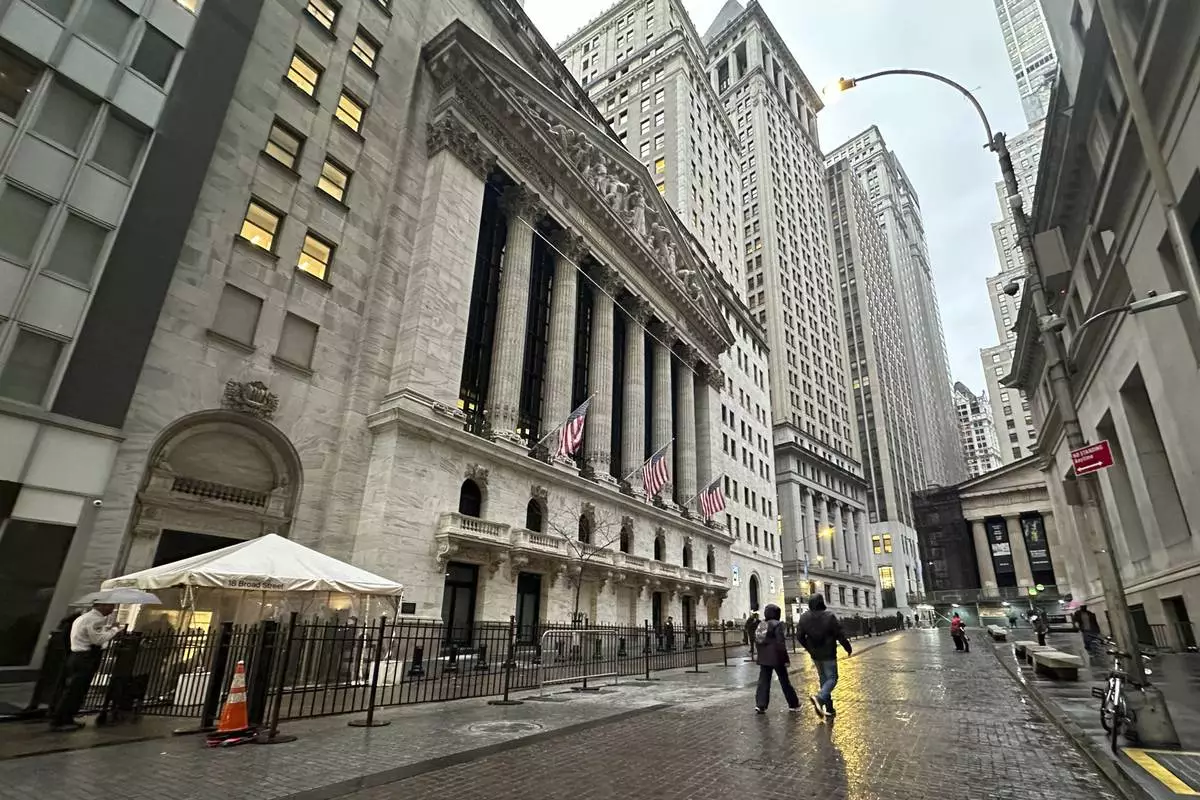
People walk past the New York Stock Exchange on Tuesday, Nov. 26 2024. (AP Photo/Peter Morgan)
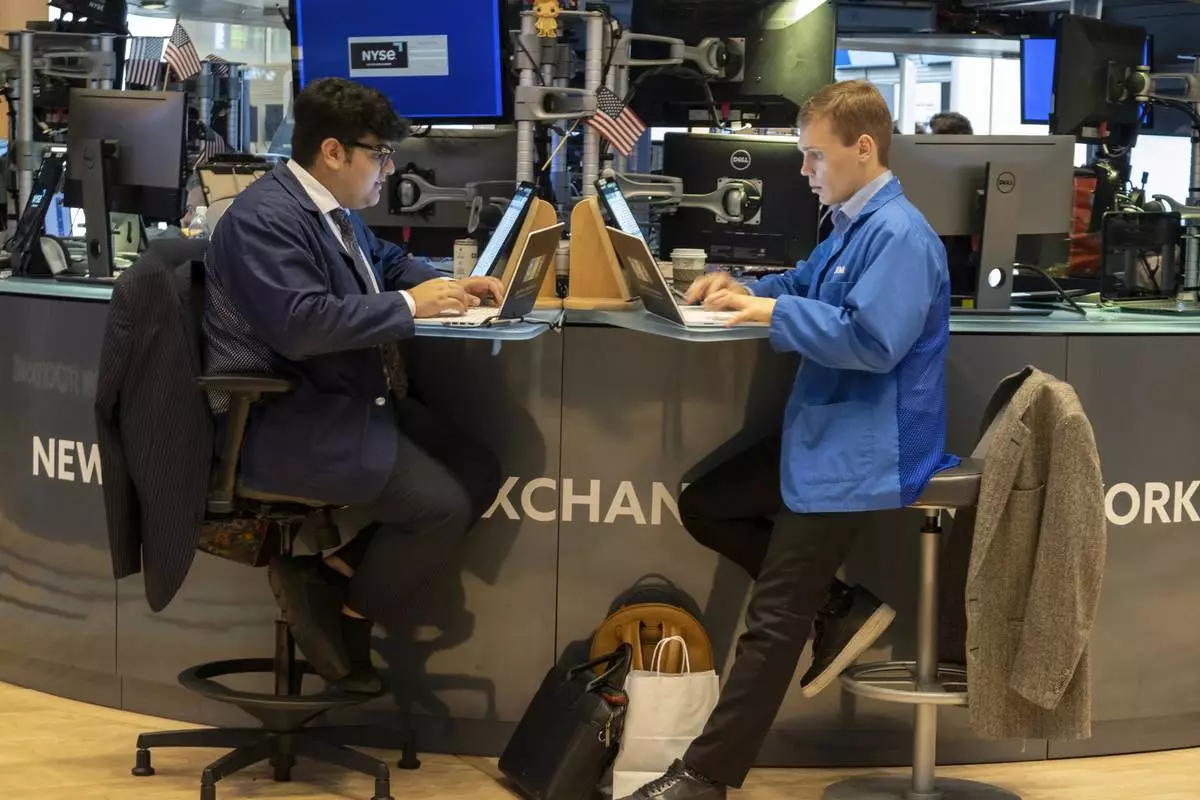
FILE - People work on the New York Stock Exchange trading floor in New York on November 21, 2024. (AP Photo/Ted Shaffrey, File)
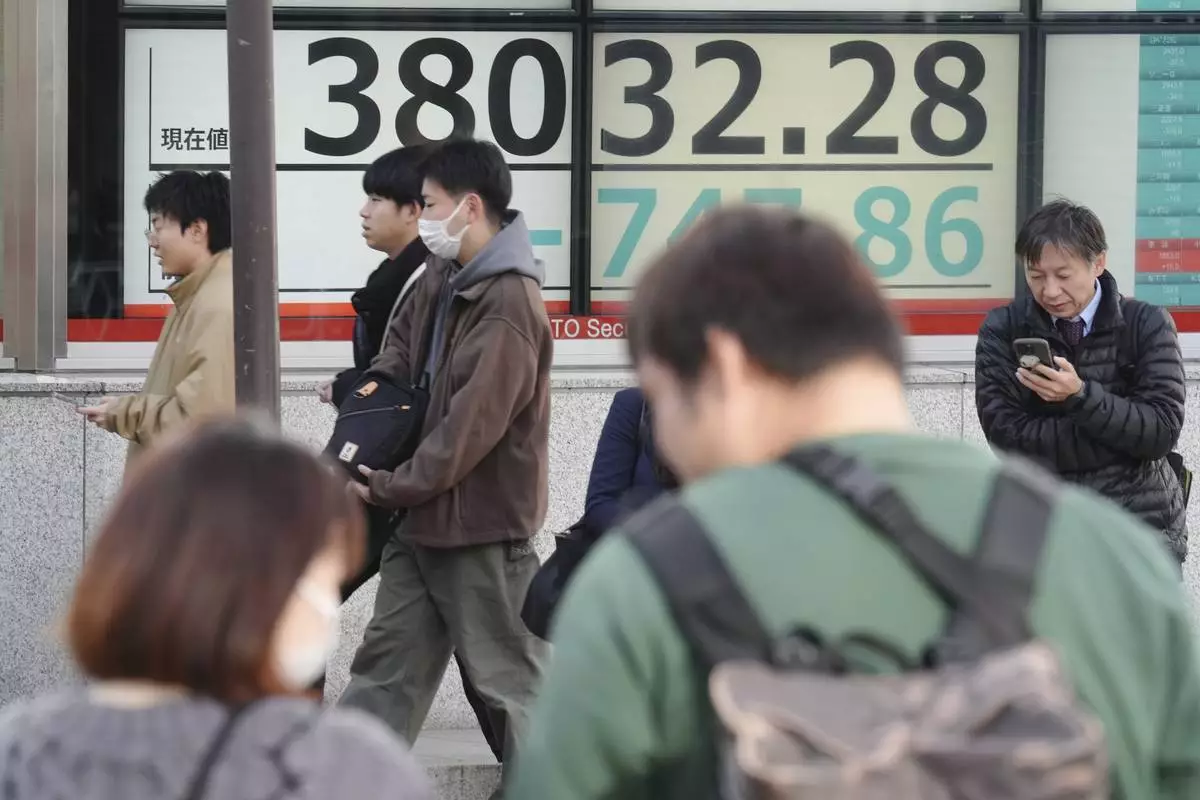
People walk in front of an electronic stock board showing Japan's Nikkei index at a securities firm Tuesday, Nov. 26, 2024, in Tokyo. (AP Photo/Eugene Hoshiko)
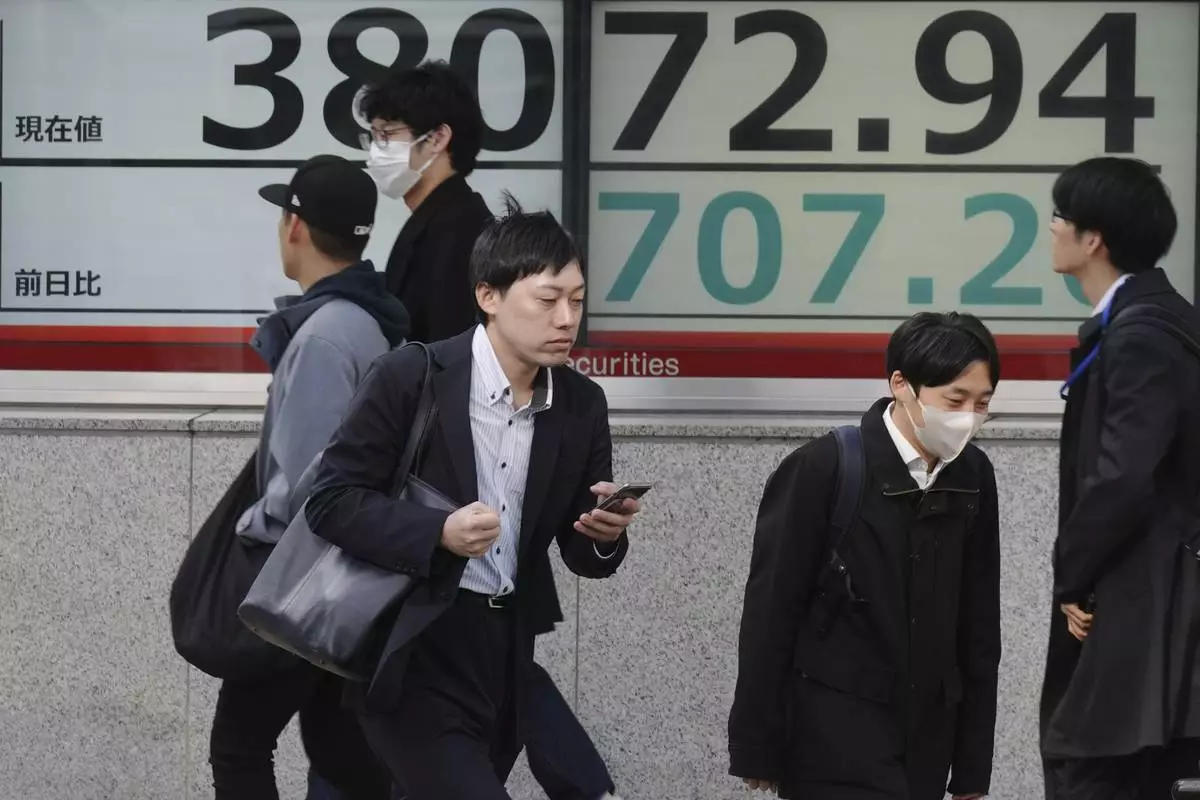
People walk in front of an electronic stock board showing Japan's Nikkei index at a securities firm Tuesday, Nov. 26, 2024, in Tokyo. (AP Photo/Eugene Hoshiko)
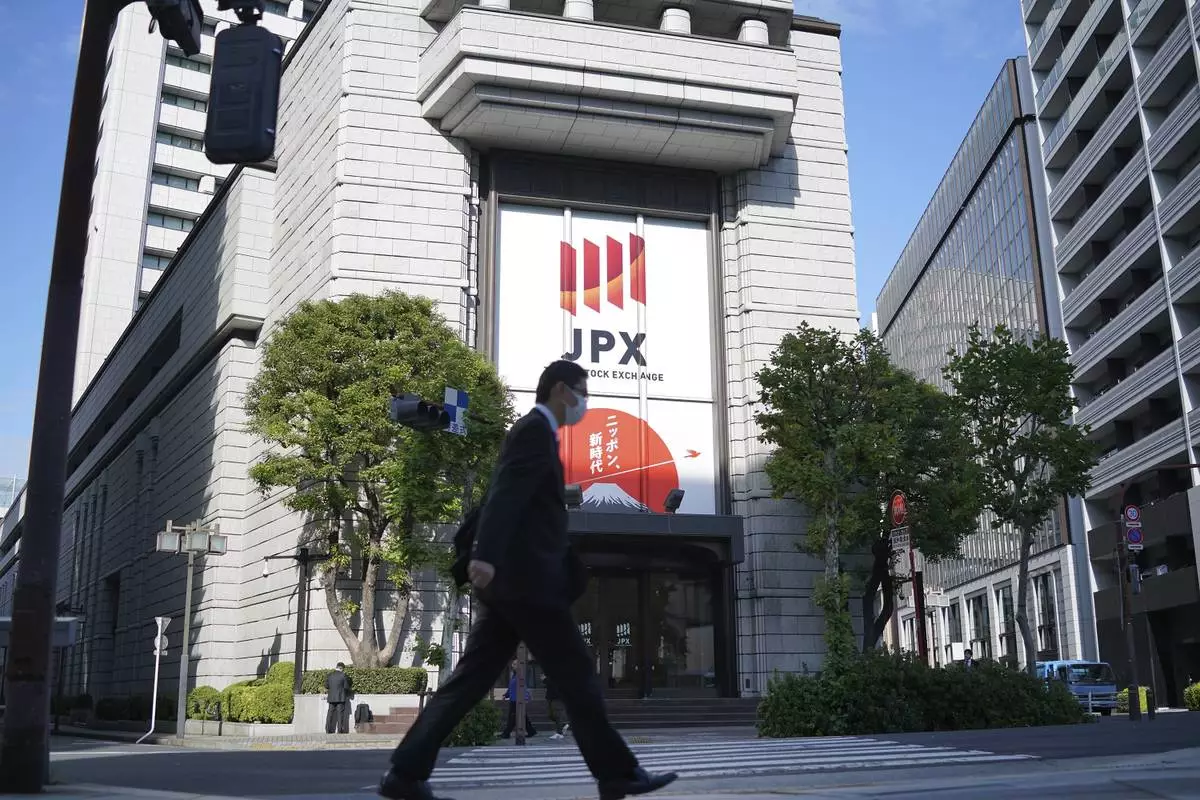
A person walks in front of the Tokyo Stock Exchange building at a securities firm Tuesday, Nov. 26, 2024, in Tokyo. (AP Photo/Eugene Hoshiko)
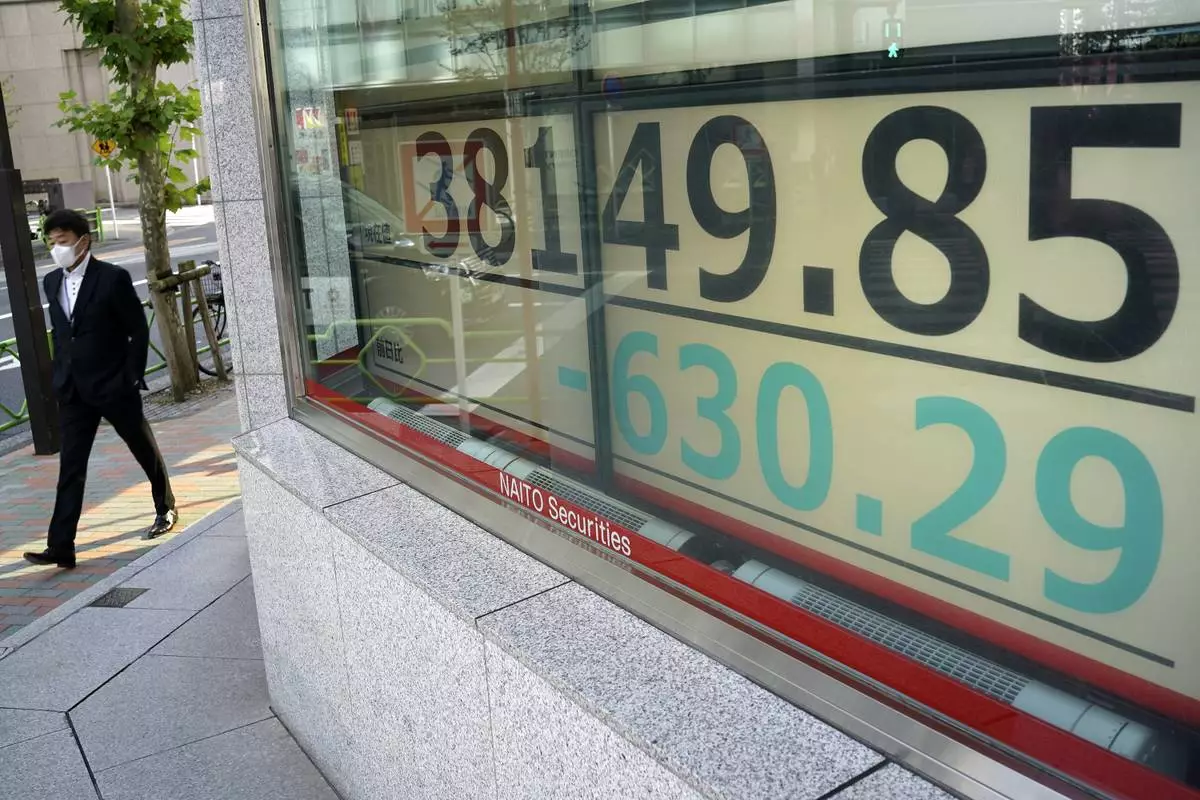
A person walks in front of an electronic stock board showing Japan's Nikkei index at a securities firm Tuesday, Nov. 26, 2024, in Tokyo. (AP Photo/Eugene Hoshiko)
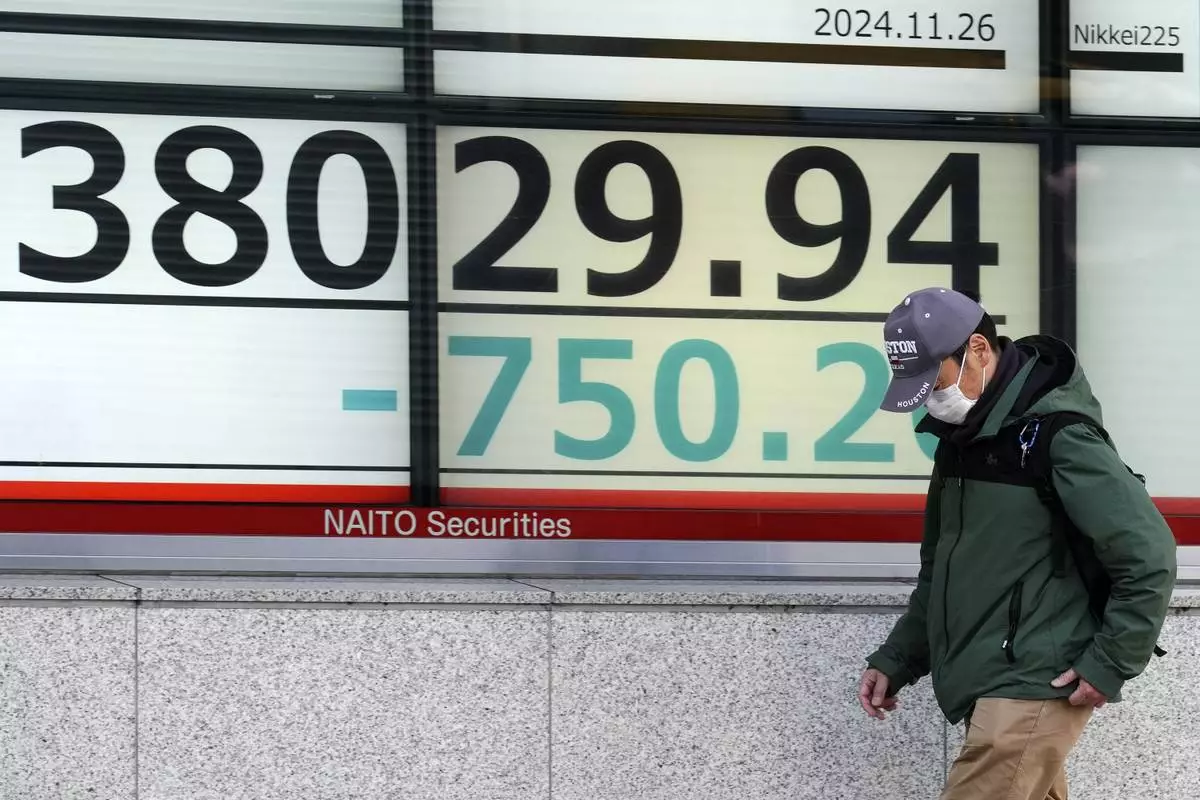
A person walks in front of an electronic stock board showing Japan's Nikkei index at a securities firm Tuesday, Nov. 26, 2024, in Tokyo. (AP Photo/Eugene Hoshiko)
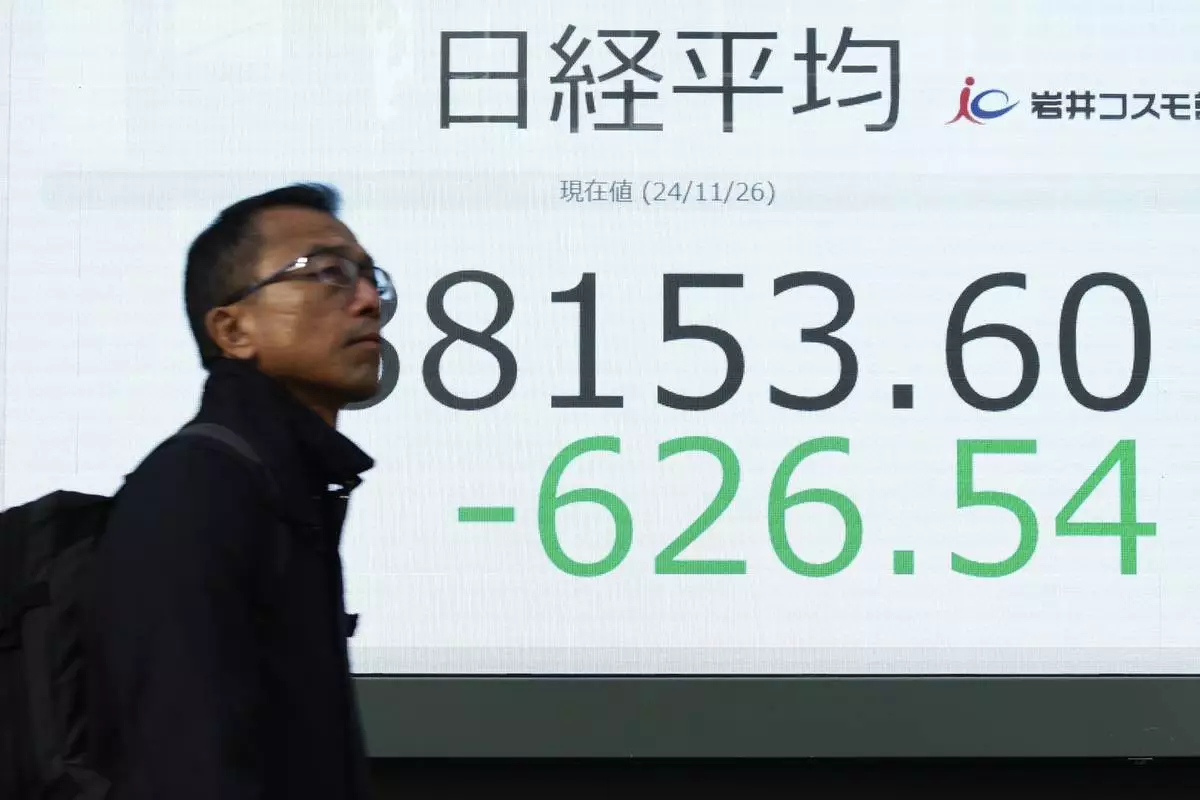
A person walks in front of an electronic stock board showing part of Japan's Nikkei index at a securities firm Tuesday, Nov. 26, 2024, in Tokyo. (AP Photo/Eugene Hoshiko)


















